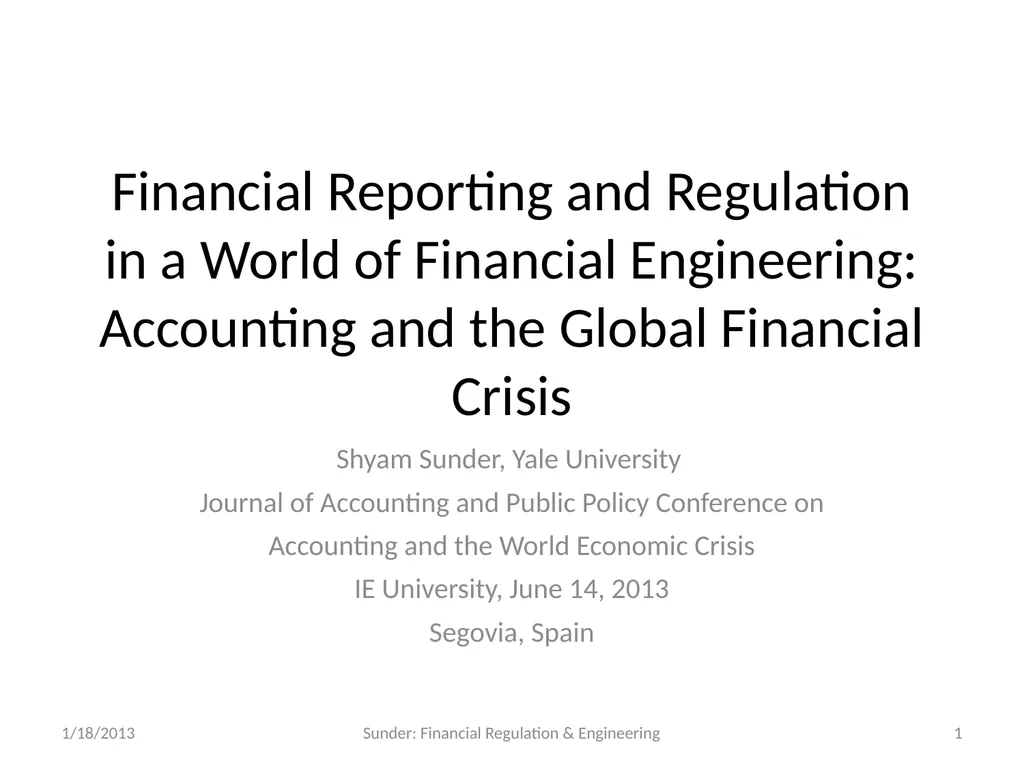
Author : test | Published Date : 2025-06-23
Description: Financial Reporting and Regulation in a World of Financial Engineering: Accounting and the Global Financial Crisis Shyam Sunder, Yale University Journal of Accounting and Public Policy Conference on Accounting and the World Economic CrisisDownload Presentation The PPT/PDF document "" is the property of its rightful owner. Permission is granted to download and print the materials on this website for personal, non-commercial use only, and to display it on your personal computer provided you do not modify the materials and that you retain all copyright notices contained in the materials. By downloading content from our website, you accept the terms of this agreement.
Here is the link to download the presentation.
"Financial Reporting and Regulation in a World of"The content belongs to its owner. You may download and print it for personal use, without modification, and keep all copyright notices. By downloading, you agree to these terms.













